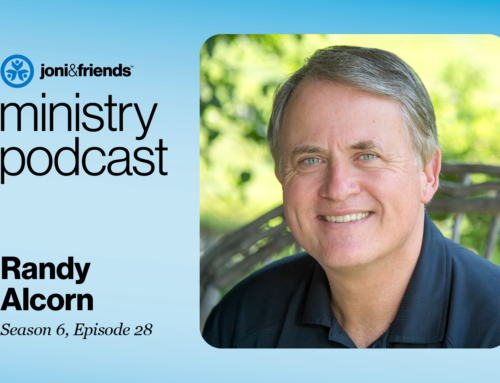Meet Special Needs Father and Pediatric Neurosurgeon Dr. Benjamin Warf
Subscribe to the Joni and Friends Ministry Podcast
A proud father of six, including a daughter living with significant disabilities, Ben knows the refining fire of personal suffering. As a pioneering pediatric neurosurgeon and professor at Harvard Medical School, Dr. Warf has changed lives in the U.S. and abroad. But as a child, entrusting his life to Christ, Ben never could have imagined the plans and purposes God had in store for him.
The son of a Baptist preacher, Ben and his family moved to the Appalachian Mountains in eastern Kentucky when he was in fifth grade. Though they had only moved across the state, they discovered a different culture.

As Ben says: “Many people were involved in the coal mining industry. There was a lot of coal dust around… A river ran just behind the backyard of the parsonage. Sometimes I would take my BB rifle and go down and shoot at Clorox bottles floating down the river. So that was some of my growing up.”
Dr. Warf’s family ended up loving their new town and the people there. To this day Ben considers it “home.”
A Taste of Discrimination
As the son of a pastor, Ben learned that following Jesus meant serving people in need. He also watched his father, who lived with a physical disability, face discrimination.
“Now, mind you, my father could hunt and fish and play golf. He just walked with a limp and had a built-up shoe, and some spinal deformities,” says Ben.
Sensing a call to go into foreign missions, Ben’s father applied through his denomination to be sent overseas. The mission board denied him saying they couldn’t send somebody with a disability to serve as a missionary. Seeing his father prevented from following his call because of his disability made a lasting impression on Ben. It also planted seeds for his own future.
At age 13, Ben made a public commitment to be a medical missionary. Despite his father’s assurances that God doesn’t hold us to “youthful, irresponsible decisions,” Ben believed that one day he would follow through on his promise.
An Impossible Thing
In college, Ben met and married Cindy, who encouraged her husband to apply to Harvard Medical School, which Ben never would have done on his own. As he says:
“I went to a very small high school. It wasn’t a particularly good one… I didn’t have much choice in where to go to college. I went where my father went, a little Baptist school in Kentucky called Georgetown College…
Interestingly, and for no logical reason, I went from there to Harvard Medical School, which was an impossible thing. And I really think that God did that, either that or I filled some kind of hillbilly quotient for the school.”
During medical school Ben got interested in research, and the brain. He specialized in pediatric neurosurgery and got his first faculty job at the University of Kentucky. While Ben enjoyed teaching and writing, he recalls a sort of drumbeat in the back of his head that God wanted him to do something else.
“God, if you are teaching me a lesson, don’t do it through my daughter…”
During Ben’s neurosurgery residency, he and Cindy had three children. When their fourth child, Sarah, was born during his pediatric neurosurgery fellowship at Boston Children’s Hospital they knew she had some things wrong with her. As Ben says:
“For about the first week or two, when she was in the NICU, they couldn’t give me a diagnosis. I remember sitting there talking to these neonatologists and getting a little angry, saying, ‘Here we are at Harvard University, one of the best medical centers in the world, and you can’t tell me what’s wrong with my daughter?’
So finally, after a few months, I was reading a book about congenital neurologic disorders when I ran across this syndrome, which was a rare presentation of neurofibromatosis, that involves the face. And I remember telling my wife, that’s what Sarah has.”
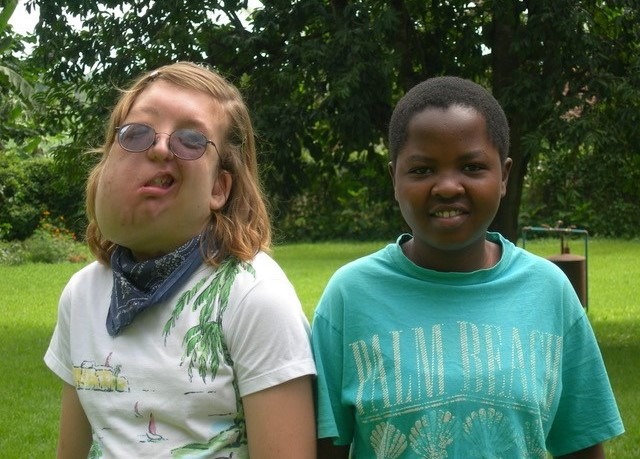

Coming to terms with Sarah’s condition, which causes developmental delays, multiple tumors, and deformities of the head, neck, and face, Ben grappled with a question that many special needs parents face: “Why is this happening?” He prayed to God, “If you are teaching me a lesson, don’t do it through my daughter, making her suffer.”
“If God healed Sarah, she’d be a different person.”

“As he went along, he saw a man blind from birth. His disciples asked him, ‘Rabbi, who sinned, this man or his parents, that he was born blind?’ ‘Neither this man nor his parents sinned,’ said Jesus, ‘but this happened so that the works of God might be displayed in him.’”
John 9:1–3
While Ben and Cindy struggled with the gravity of Sarah’s diagnosis and learned to meet her complex needs, some people in their circles added to the burden by suggesting that Sarah was disabled because of her parents’ lack of faith. But as believers, they leaned on the truth found in John 9—that disability can be a part of God’s good plan. Ben shares:
“Of course I prayed that God would heal my daughter. But that wasn’t what he chose to do. And, in hindsight now, I can see that was actually a wise choice on his part because Sarah is who she is.
I remember coming to the decision early in her life that I was going to stop praying that God would change Sarah. Because if God healed Sarah, she’d be a different person. She would not look remarkable like she does. She wouldn’t have the same mind or personality. She’d be a different girl. So by praying for God to heal Sarah, I would be asking him to take her away and give me a different daughter.”
Facing Cruelty from the World
From the time Sarah was little, the world has treated her differently. When the family takes Sarah out, people often quickly look away or stare at her with shock. Now over 30 years old, Sarah can walk and talk, reads at a fifth-grade level, and is a happy young woman. But the way people look at and respond to her has been the hardest part of her life.
“For Sarah going out in public, especially around children, is a real challenge because she has had so much in the way of laughing and pointing and kids being scared of her. I think that’s the worst thing for her—that little children are scared of her—because she loves children so much.”
Ben
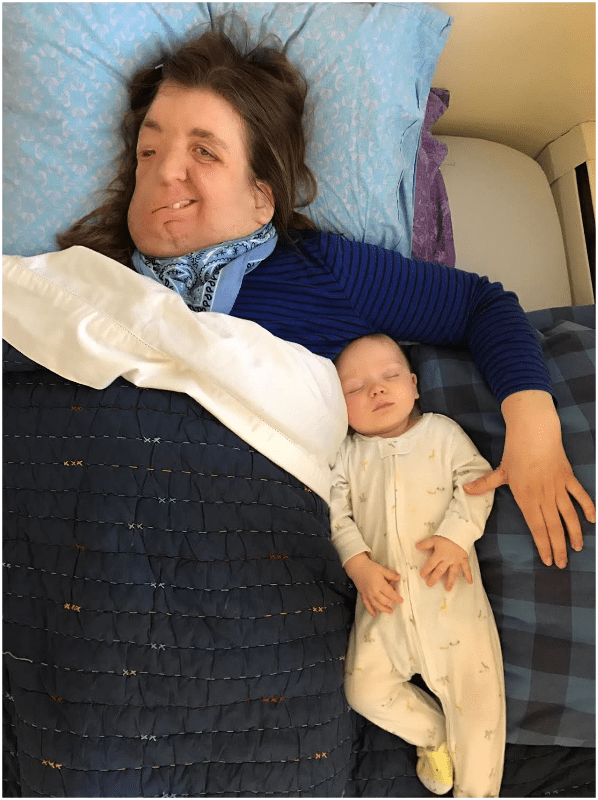

While she could do a simple job, any employment that would put Sarah in public would subject her to traumatizing reactions from the people she meets. Sarah also often asks, “Why can’t I get married?” and “Why can’t I have children?” She wants to know: “What’s wrong? Why don’t boys like me?” “Why do people think I’m ugly?” As Ben shares:
“That’s her biggest area of suffering—not the fact that she drools a lot or that she has trouble talking, or people can’t understand her, or that she is very hard of hearing—it’s that people think she’s ugly.
I wish people could look at Sarah as a person, not a thing… to learn her lovely and funny personality—get to know her and forget about how she looks. Because she’s hilarious, such a fun and wonderful person. But people don’t see that. They see something that they’re afraid of or they don’t understand.”
Ben’s Work—and Sarah’s Witness—in Uganda
Despite the challenges of Sarah’s disability, for Ben the drumbeat in the back of his mind continued—a sense that God was calling him to overseas medical missions work. Interviewing with one organization, Ben and Cindy were told:
“We can’t send your family as missionaries because you have a child with a disability. The people will think that you’re cursed, and it’ll ruin your witness.”
Pushing through the discrimination they faced, Ben and Cindy moved their six children to Uganda. Arriving, they found that the mission organization that didn’t want to send them was right about one thing… people did think that what Sarah had was a curse. Any disability or deformity was considered a curse.

But God had a plan to use the Warf family to set people free from the toxic misconception of disability as a curse.
“As it turns out, I think God sent Sarah to Uganda as much as he did me because people really took notice of the fact that we had Sarah out in public and loved her. And to them, that was extremely remarkable.
I would take her to the hospital and all these mothers (often mothers who had been abandoned by the father and ostracized from their family for having one of these ‘cursed’ children) would see that I had a ‘curse’. They were taken aback by the fact that a rich American white guy would have a child with problems and loved her and had her out in public… didn’t stick her away somewhere,” says Ben.
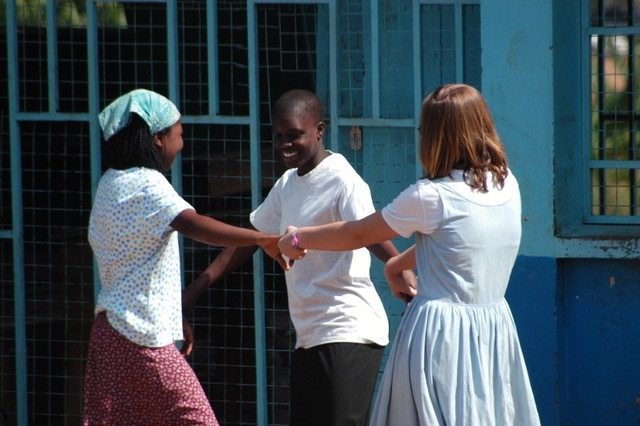
New Possibilities for Healing
As a doctor, Ben has led groundbreaking work in the field of pediatric neurosurgery, brought quality healthcare to people in dire need, and trained students on their way to becoming doctors. But if you ask him, what he loves most about his job is seeing parents’ relief and joy as they watch their children heal and thrive. Ben loves the children and families he serves, and they love him too.
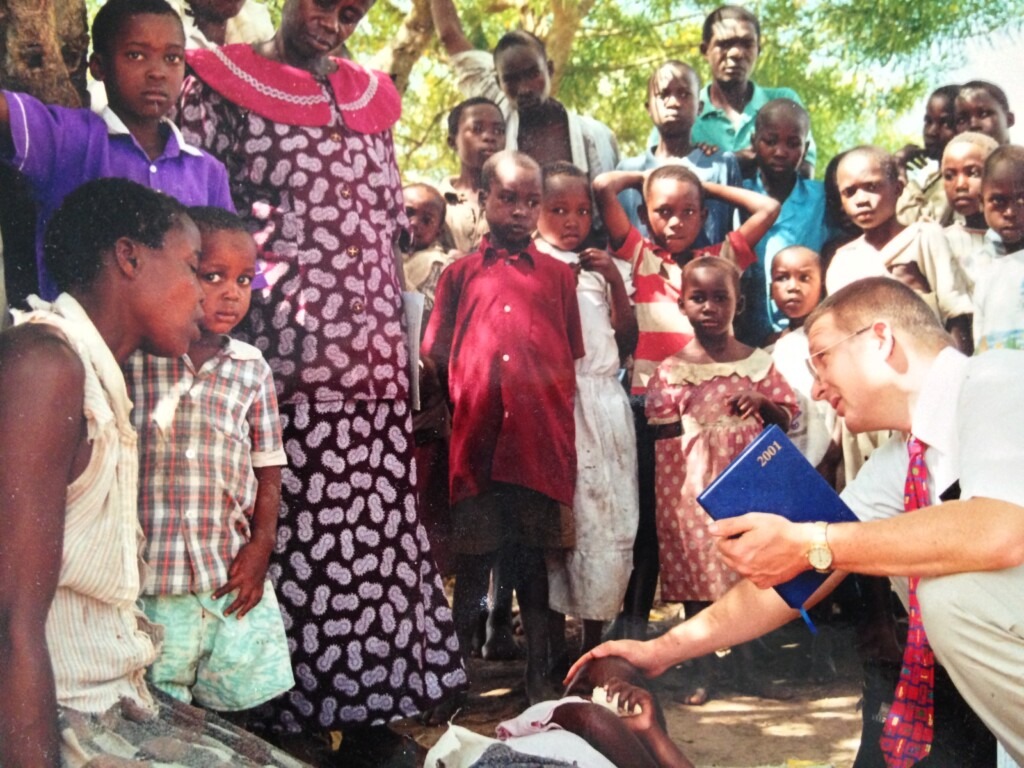
Dr. Warf’s love (and God’s!) shines through care he takes with every case.
“I think about them a lot. I do a lot of homework that families and patients never see. The other thing is, I pray about my patients and ask God to help me do the right thing. I ask him every night before I do surgery, and I usually name the child by name…
‘Help me do the best that can possibly be done for this baby. Protect him from any complications, please make this help him and give him a good recovery.’
There have been times in surgery when I’ve really been in a fix. You get into bleeding or something and can’t figure out where it’s coming from. For me, the first thing is to say, ‘God, please help me. How are we gonna get through this?’ And you know, we always do. I wouldn’t want to be a surgeon if I didn’t believe in God—I depend so much on him.”
Dr. Warf’s Encouragement to Special Needs Parents
Drawing on his own experiences with suffering, Ben wants to encourage struggling parents that the pain isn’t permanent.
As Psalm 90 says, “Teach me to number my days that I might gain a heart of wisdom.”
Though he knows how hard it can be, Ben also urges parents to trust God:
“I don’t know why God does things the way he does. But I would say that if you have a child, and it’s such a burden taking care of them, or it’s embarrassing trying to take them to a restaurant, or you’re stuck with multiple medical procedures, having to be in and out of the hospital, that’s all really hard stuff. And don’t let anybody downplay that.
At the same time, I would say to believers, ask God to work out his purposes for what you and your family are facing, because he has purposes. I believe that. You just have to trust him. You know, God intended Sarah—and every child living with a disability. He’s got much wider purposes, eternal purposes, many of which we don’t see.”
“‘For my thoughts are not your thoughts, neither are your ways my ways,’ declares the Lord. ‘As the heavens are higher than the earth, so are my ways higher than your ways and my thoughts than your thoughts.’”
Isaiah 55:8–9
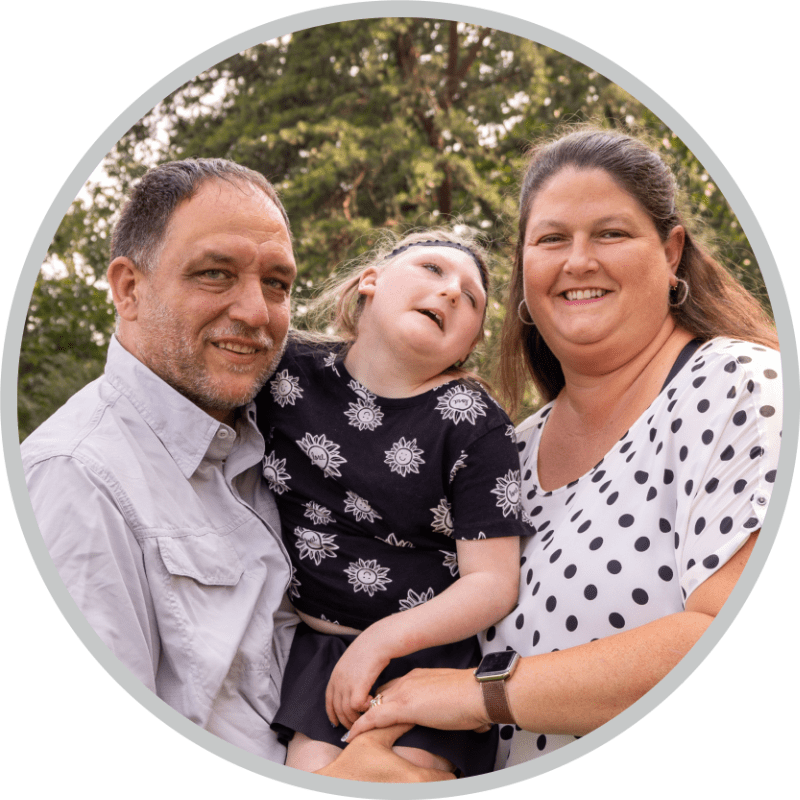
Support Joni and Friends
Since 1979 Joni and Friends has committed to reaching and serving people with disabilities with practical help and the saving love of Jesus.








